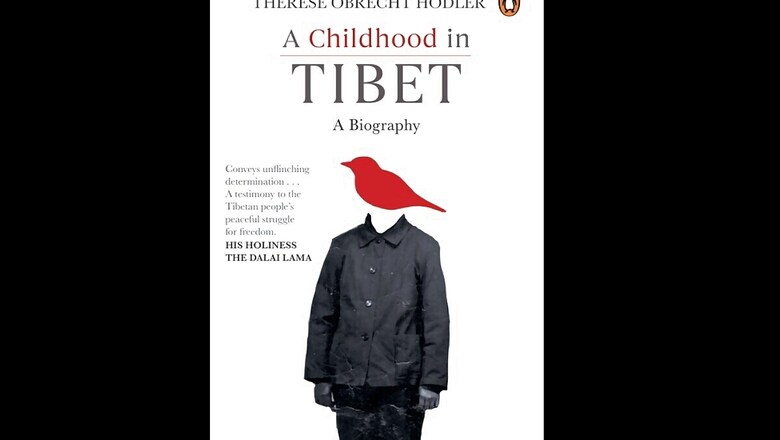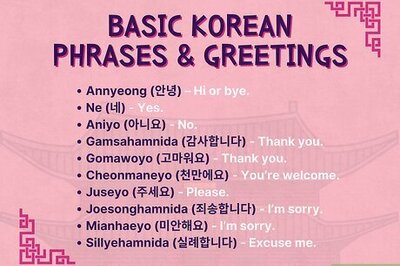
views
In 1957, Mao Zedong introduced the system of ‘re-education through work’ in China. Two years later, the Chinese relentlessly began re-educating the Tibetans. First and foremost, this affected the Tibetan upper class. Between 1960 and 1962 the so-called social reform was directed against them, the class enemies. All those who had previously worked for the Tibetan government, the ruling families, large landowners, lamas, members of monasteries and the military, merchants, artists, scholars and all their family members were divided into different ‘classes’. Their children were branded as butruk, occasionally insulted by other Tibetans, pelted with stones and sent to road construction camps instead of going to school.
The artificial lake fronting the Potala at the centre of Lhasa was created by the forced labour of the butruk. Even today it is considered by Tibetans as a memorial to the suffering of the children.
‘Re-education’ also involved the confiscation of all private possessions, every single object belonging to a Tibetan. Most of them lost all that they owned. From then on, people lived in a ‘nobody-house’, and ‘nobody’ would take care of its maintenance. For the time being, Choekyi Namseling was lucky. Her big house in Lhasa had been confiscated, but with her three children and her grandmother she found shelter in her sister Yangchen Dolkar’s house. Yangchen was also the mother of Tendöl’s cousins Pema (who already stayed in Kalimpong at that time), Lochoe and Rigzen. They considered themselves lucky that, unlike many other Tibetan families, they were allowed to stay together.
The spacious house of Tendöl’s aunt had a courtyard with small rooms surrounding it. In the past, the aunt had rented out three rooms. Now twelve families were already accommodated in her home. Each family was assigned a room. Choekyi and her three children also had a room. All inhabitants of the house had an identity card, on which the names of the flatmates were entered. It was not unusual for Chinese officials to show up in the middle of the night to carry out checks. If someone was absent, or if an extra person was counted, all residents of the house had to admit their guilt the next day in a so-called ‘struggle session’– thamzing–and face accusations and beatings.
***
For the population, these struggle sessions were worse than death or torture, says Tendöl. They took place every evening after work and lasted until midnight. The Tibetans were forced to criticize and beat each other, hurt and humiliate each other both physically and mentally. Children had to testify against other children or against their parents, neighbours against neighbours, pupils against pupils, tenants against landowners, former servants against their landlords. Children had to spit in the face of their father or mother and beat them with all their strength. Monks were hustled through the streets handcuffed, with large paper dunces’ hats on their heads, and insulted. If you didn’t perform convincingly at thamzing, you were beaten by the guards. Many Tibetans lost their hearing as a result of the numerous blows to their ears, some lost their sight because they were punched in the eyes, and all of them suffered emotional harm during the struggle sessions.
Tendöl was still small when she and her amala (mother) were sent for a few months to a road construction camp in Kongpo, near the Indian border. As a member of the upper class, and wife of a former secretary of state, Choekyi was severely punished during the ‘re-education of the class enemies’. In Kongpo, Choekyi met a woman from Kham who was selling tea near the camp and had a little daughter of her own. She was willing to look after Tendöl. Not far from the camp there was a river and Choekyi was scared that little Tendöl might fall into the torrential stream and drown.
In the camp thamzing took place every evening. The five-year-old girl also attended the struggle sessions. At that age Tendöl did not understand what was going on at all. The cook in the labour camp told her mother that Tendöl sometimes played thamzing all by herself, screaming and hammering on objects with a stick. Choekyi was horrified. ‘Even many years later she was unable to talk about it,’ recalls Tendöl.
Read all the Latest News, Breaking News and Coronavirus News here. Follow us on Facebook, Twitter and Telegram.




















Comments
0 comment